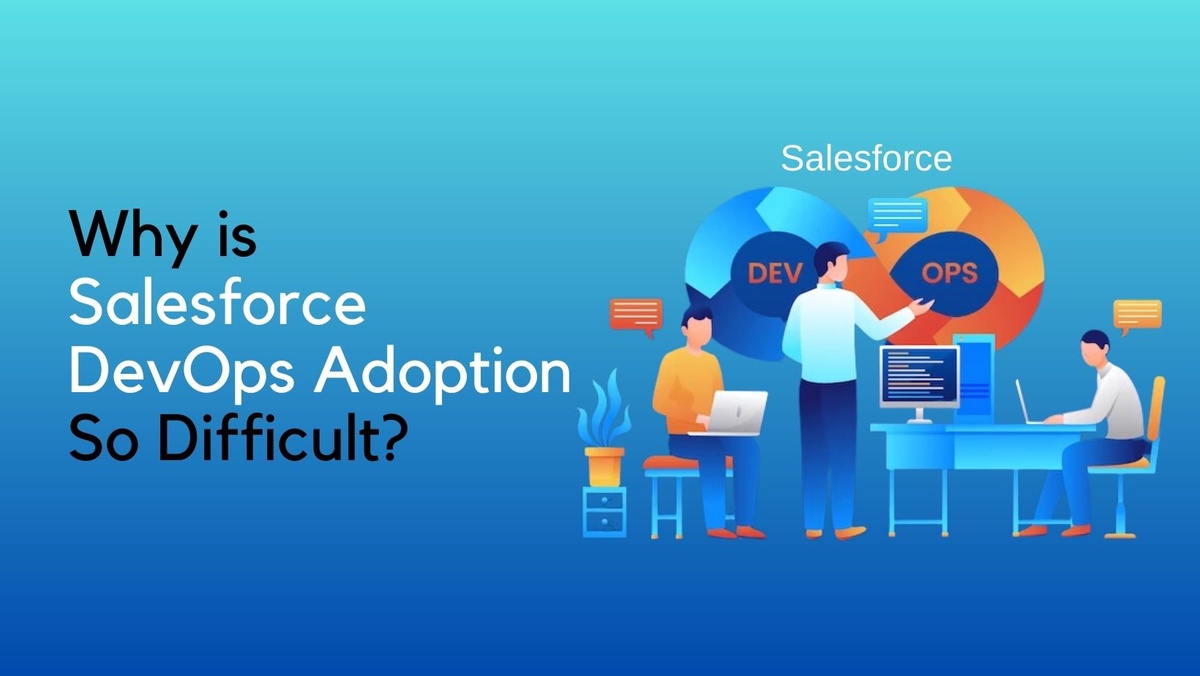Salesforce, as one of the leading Customer Relationship Management (CRM) platforms, plays a pivotal role in modern businesses. To optimize its utilization, organizations are increasingly turning to DevOps practices. However, despite its potential benefits, Salesforce DevOps adoption often encounters significant challenges that hinder seamless implementation.
Understanding Salesforce DevOps
Salesforce DevOps is a methodology that combines development and operations, aiming to streamline the software development lifecycle. It emphasizes collaboration, automation, and continuous delivery to ensure faster and more reliable application releases within the Salesforce ecosystem.
Importance of DevOps in Salesforce
DevOps in Salesforce enables teams to efficiently create, deploy, and manage applications, resulting in enhanced customer experiences and better business outcomes. It facilitates rapid development, seamless integration, and efficient bug-fixing, all contributing to agility and innovation.
Challenges in Salesforce DevOps Adoption
1. Lack of Proper Strategy
A major obstacle in Salesforce DevOps adoption is the absence of a clear strategy. Without a well-defined roadmap, teams struggle to align their efforts, leading to confusion and inefficiency.
2. Integration Complexity
Integrating various components within Salesforce can be intricate, especially when dealing with legacy systems. The complexity of merging different technologies often results in delays and compatibility issues.
3. Change Resistance
DevOps adoption requires a cultural shift towards collaboration and continuous improvement. Resistance to change from established processes can hinder the smooth transition to DevOps practices.
4. Cultural Shift
DevOps emphasizes open communication and collaboration among development and operations teams. However, achieving a cultural transformation that encourages cross-functional teamwork can be challenging.
5. Continuous Learning
DevOps is an evolving practice, and continuous learning is essential for its successful implementation. Keeping up with new tools, methodologies, and best practices demands time and effort.
Also Read: How Salesforce Development Can Make Business Processes Efficient?
Overcoming the Implementation Hurdles
Building a Strong Strategy
To overcome the lack of strategy, organizations must invest time in planning. A well-structured approach, including goals, timelines, and resource allocation, lays the foundation for successful Salesforce DevOps adoption.
Simplifying Integration
Streamlining integration requires careful consideration of tools and technologies. Employing integration platforms and APIs can help simplify the process and enhance compatibility.
Addressing Change Management
Change management is crucial for overcoming resistance. Transparent communication, involvement of all stakeholders, and showcasing the benefits of DevOps can encourage acceptance.
Fostering Cultural Change
Creating a culture of collaboration and continuous improvement involves leadership support and employee engagement. Training programs and workshops can help employees adapt to new ways of working.
Continuous Learning Initiatives
Organizations should encourage continuous learning by providing resources, training, and opportunities to stay updated with the latest DevOps trends and practices.
Benefits of Successful Salesforce DevOps
Implementing Salesforce DevOps effectively leads to several benefits, including faster release cycles, reduced errors, improved collaboration, enhanced customer experiences, and increased innovation capabilities.
Conclusion
In conclusion, the journey to successful Salesforce DevOps adoption may be challenging, but the benefits far outweigh the difficulties. By addressing the main implementation hurdles and fostering a culture of collaboration and learning, organizations can thrive in the ever-evolving landscape of software development.
Salesforce DevOps adoption comes with its set of challenges, but the rewards are substantial. By addressing these challenges head-on, organizations can transform their development and operations processes, leading to increased efficiency, agility, and competitiveness in the market.
FAQs
Q: Is Salesforce DevOps suitable for all businesses?
A: Yes, Salesforce DevOps principles can be adapted to suit businesses of various sizes and industries.
Q: How can organizations foster a culture of collaboration?
A: Leadership support, clear communication, and team-building activities contribute to creating a collaborative culture.
Q: Can automation tools simplify Salesforce DevOps?
A: Yes, automation tools streamline repetitive tasks and ensure consistent and error-free deployments.
Q: What are the benefits of continuous learning in DevOps?
A: Continuous learning keeps teams updated with new practices, technologies, and methodologies, ensuring optimized processes.
Q: How can organizations measure the success of Salesforce DevOps implementation?
A: Success can be measured through metrics such as deployment frequency, lead time, and mean time to recovery.


No comments yet